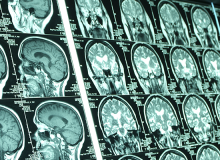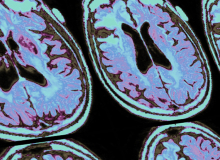The Sydney Memory and Ageing Study (MAS), is one of Australia’s largest and longest running studies of ageing and cognitive health. MAS began in 2005 with the aims of investigating rates and predictors of healthy cognitive ageing, mild cognitive impairment (MCI) and dementia in older Australians. Over the last 14 years, MAS has collected biomarker, genetic/epigenomic, neuroimaging, cognitive, proteomics/lipidomics, health, and lifestyle data to determine what factors are associated with cognitively normal ageing and progression to MCI or dementia.
Projects
CHeBA Longitudinal Studies
The original study, Sydney Memory and Ageing Study (MAS), ran for 14 years and is one of Australia’s largest and longest running studies of ageing and cognitive health. Over 200 publications using MAS data have appeared in a large range of respected national and international journals.
Despite the rapid ageing of our population there have been only a few population-based studies of centenarians and near-centenarians internationally, and none in Australia. The study of exceptionally long lived individuals will shed light on the determinants of successful aging, both environmental and genetic. It will also help us understand the health care requirements of this group and enable us to plan accordingly.
The Older Australian Twins Study is a longitudinal study investigating healthy brain ageing in older twins (65+ years). Healthy ageing is characterised by low levels of disability, high cognitive and functional capacity, and an active engagement in life. The most important ingredient of healthy ageing is a healthy brain, bereft of age-related diseases and dysfunction. Brain ageing and brain diseases are determined by multiple genetic factors that interact with environmental influences. Since identical twins share 100% of their genetic code, whereas non-identical twins share half their genetic information, detailed comparisons of these two groups has the potential to discover new genes involved in cognitive decline or resilience.
Maintain Your Brain is a randomised controlled trial of multiple online interventions designed to target modifiable risk factors for dementia in general and AD in particular. Risk factors to be addressed are physical inactivity, cognitive inactivity, depression/anxiety, overweight and obesity, and poor dietary habits. Up to four intervention modules (physical activity, nutrition, brain training, and peace of mind) will be administered based on individual risk profiles. All activities and assessments will be conducted on a computer with internet access via the Maintain Your Brain eHealth platform.
All CHeBA Projects

Proteomics is the large scale study of the protein expression profile of a living organism. Proteomes not only vary between cell types and tissues, but are dynamic in that they vary over time, with disease, and respond to environmental and lifestyle change. They are involved in a range of cellular processes, including ageing. We hope to better understand this role by studying protein expression, function and changes in normal ageing and age-related disorders, such as Mild Cognitive Impairment (MCI) and Alzheimer’s disease (AD).
While the proportion of Australians drinking at risky levels has generally declined over the last two decades, risky drinking patterns have remained steady or increased among older adults. The most recent data from the 2019 National Drug Strategy Household Survey indicate that nearly one in five Australians in their 60s drink at levels exceeding the official guidelines of more than two drinks per day, putting them at risk of long-term harm. One of the most significant risk factors associated with alcohol consumption in later life is the increased likelihood of cognitive decline and dementia.

Traditionally, the study of the relationship between brain structure, brain ageing and associated neuropsychiatric disorders involved examining circumscribed atrophy or other abnormalities of various grey or white matter regions of interest by using 3D T1- weighted structural MRI scans. However, there are limitations with this approach. One such limitation is that in normal ageing, and in brain diseases such as Alzheimer’s Disease (AD) or schizophrenia, a large number of structures show atrophy or abnormality making the significance of any one structural change difficult to establish.
Prior investigations of human brain structural networks have primarily focused on healthy young adults and clinical samples. We study the scans of community-dwelling participants aged 70-90 years in order to examine normal age-related changes in the structural organisation of the elderly brain.
The total contribution of vascular pathology to dementia is estimated to be as high as 50-70%. The Vascular Contributions to Dementia CRE (VCD-CRE) brings together leading researchers in the fields of cerebrovascular disease and dementia nationally and internationally, to address the most important issues relating to the analytical epidemiology of Vascular Cognitive Impairment and Dementia (VCID), its robust biomarkers, and its treatment and prevention, so as to reduce its overall health burden. The project hopes to place VCID research at the forefront of dementia research alongside that of Alzheimer’s disease (AD) and meet the promise of vascular dementia as a truly “preventable dementia”.








